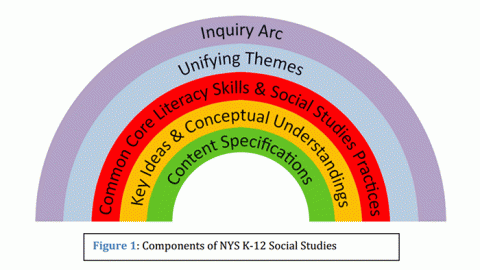History Department
Welcome to the History Department at the Academy for Software Engineering!
Per New York State DOE, "The Social Studies Practices represent the social science and historical thinking skills that students should develop throughout their K-12 education in order to be prepared for civic participation, college, and careers.”
- Here is the link to NYS Common Core Social Studies Standards
At the Academy for Software Engineering, we believe that literacy is a core skill practiced across all subjects and disciplines that seek to elevate students’ literacy levels in three critical areas: Prose, Document, and Quantitative literacy. We continuously reflect on each grade’s History curriculum to ensure that students’ identities, cultures, prior knowledge, and personal gifts are brought into the classroom as vehicles for learning and appreciating the diversity within the classroom. If you would like to know more about New York State’s Initiative to promote and implement a culturally responsive-sustaining framework, please see the link below:
Social Studies Practices
Similar to the CC ELA standards, here are the core Social Studies skills taught across all grades:
- Crafting an effective claim that is grounded in strong evidence
- Identifying, citing, analyzing and discuss evidence
- Dissecting perspectives and positions to understand and craft counterclaim arguments
- Synthesizing information from multiple, different types of primary and secondary sources
- Contributing personal and new thoughts to the conversation/topic/assignment/task
- Make connections to self, others, and the world
- Chronological Reasoning and Causation
- Comparison and Contextualization
- Geographic Reasoning
- Economics and Economic Systems
- Civic Participation
History courses offered at AFSE are as follows:
- 9th Grade: Participation in Government
- 10th Grade: AP World History & Global History
- 11th Grade: AP History & US History Regents Courses
- 12th Grade: Economics

The components work symbiotically in both instruction and assessment. Through an inquiry-based approach, students develop thematic and conceptual understandings while applying inter-disciplinary practices and literacy skills in the context of the content.
These skills are modeled and taught to students in a variety of ways scaffolded at various levels appropriate to each student’s performance level, needs, and learning styles in order to prepare them for a variety of post-secondary opportunities as well as standardized tests that enable students to graduate and apply to college and/or post vocational programs. Below are links to the various websites that reflect the variety of college-ready tests we prepare students for: